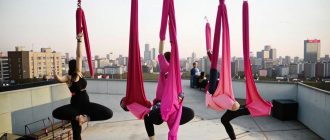The first official distance is a vivid memory in the life of every athlete, which leaves a significant trace in the running history of both amateurs and professionals. No matter how many kilometers you choose, 5 or 10, you should prepare in any case, following the general recommendations. We talked to experts and found out what you should pay attention to in training. And experienced runners, who once started their first 10 kilometers, shared interesting memories. These tips will be especially useful in the run-up to the Moscow Marathon, which will be held on September 20, 2020. Just there and you can try to overcome the first ten.
Start preparing in advance
Vera Sosnova, coach of the Running Community: First of all, choose a suitable race, which will take place not in a week or a month. If you are a complete beginner, the more time you take to prepare, the more comfortable you will be at the competition. Then find yourself a coach, assistant or partner – someone who already has experience and qualifications in this area. Of course, this is ideal.

You can start training alone, with short jogs of 15-20 minutes, alternating with steps, gradually and smoothly increasing the load. In doing so, be sure to take into account the peculiarities of the body.
Check your running equipment at training sessions
The choice of running equipment is also important: you should be comfortable. To do this, test your starting clothes and shoes in training. It is important to realize that your training, as well as the start, should be fun, without harming your health.

It is optimal to train and run competitions with a gadget that will help you monitor your pace, distance and – most importantly – heart rate. This way, you can start the race by planning your heart rate so that you won’t run out of energy in the first couple of kilometers, and you can finish the race with pleasure and benefit.
Get a medical examination
Sports doctor Alexander Kolesov: The first thing I recommend is to do a small examination of the body before you start running. At a minimum, you should take a general blood test, urine, ECG and lung X-ray. Show the results to a sports doctor who specializes in running. He will make individual recommendations on the training process.

It is better to prepare for 10 kilometers at least three months, and better all six. Unless, of course, there is no sports past behind you.
Work on running technique and foot placement
A runner is considered a beginner in the first three years. During this time, work on technique and foot placement, prepare the musculoskeletal system for running volumes, develop the body gradually. It is best to make a training plan. But in general, you can start running and yourself: for example, three times a week for 5-10 kilometers. The total volume will be about 20-30 kilometers per week. Choose the pace according to your heart rate. Remember that you should run in the aerobic zone (without shortness of breath).

Sometimes training should be diluted with special running exercises (10-15 minutes), 1-2 times a week to do myofascial release (exercises aimed at releasing connective tissue covering muscles, tendons and organs – Note “Championship”), at least once a month to visit a masseur . Baths and swimming pools will help to relax and prepare the muscles. You can also do kinesiotaping for therapeutic or preventive purposes.
Eat carbohydrates before the start and don’t forget to warm up
A few hours before the start eat a carbohydrate meal (e.g. pasta), 20-30 minutes before the start eat an energy bar and just before the start drink about 500 ml of water. Distribute your energy wisely over the distance: avoid a sharp start; it’s better to speed up in the last kilometers.

After the finish line, do a kilometer warm-up with light jogging or walking, go to the bath or swimming pool.
Memories and advice from experienced runners
Alexandra Bulavintseva: The most important advice for those who run 10 kilometers for the first time is not to start too sharply. It is better to distribute your strength smoothly over the distance. The first start is always exciting, and a runner may overestimate his or her abilities in a crowd of like-minded people. I was in incredible euphoria from the atmosphere of the holiday and the fans on my first ten and already 10 minutes after the start I felt fatigue in my legs and my heart rate became high.

Marina Vashchilo: As I remember now! It was a winter forest ten in Lithuania in February 2019. I was running and every 50 meters I thought, “I’ve had enough, I’m going to quit running and never show up at the start line again!” I was knee-deep in snow in summer sneakers, despite the fact that the path was already trampled after the first starters. And at the finish line – puddles, ice and spray! But you should know how proud I was of myself afterwards. Dozens of new races were ahead, and in 2020 – my first triathlon.
Ilya Ushakov: I ran my first ten after 9 months of erratic running, becauseI can’t call it training. I started running in general with my girlfriend to get an athletic figure, and then I got involved and already enjoyed it, but I did it occasionally. Of course, I did not know at that time that it was possible and necessary to prepare somehow for the ten, but I really wanted to take part in a mass long run. I stopped at the start “yabegu2015” from the charity foundation “Korablik”, which was held in mid-December 2015 in Gorky Park. I got very cold and took 4th place from the end, beating three girls and covering the distance in 1:07.13.

Maria Reshetnikova: On your first start I especially recommend taking a support group – friends, mom, dad or girlfriends with posters. They may not affect your result, but they will definitely share emotions with you, which will be overwhelming after the finish.
Elvira Ententeeva: I ran my first top ten two years ago at the Moscow Marathon. This is my special reference point by which I evaluate my running successes. I remember how scared I was to run my first 10 kilometers in my life. I didn’t even think I was capable of it. And, of course, I made the main mistake of a beginner – I started very fast, and for the first 2 kilometers my legs and arms were as if restrained. That’s why one of the important points is to start very smoothly. Imagine that you are driving and gradually accelerating, switching speeds successively.

If, like me, you are afraid that the distance is too long for you, a countdown will help you. See the 2km flag in front of you? Great, you’re already 1/5th of the distance behind you! Do you see a flag with the number 5 on the horizon? Great, half the distance is left! Try it, it really works.
No matter how hard it is for you at the end, make sure you try to speed up at the finish line. At least 100-200 meters before the line. This way you will win 10-15 seconds, which will probably help you to see an even beautiful result. And most importantly – don’t be afraid of anything, you are stronger and more enduring than you think!

Ksyusha Kutuzova: My first ten – “Running Hearts” in May, about four years ago. It was very cold waiting for the start. I dressed like a cabbage, I thought about taking off some of my clothes, but I got very cold and ran in everything I was wearing. And these are tights, over warm fleece pants, on top of a top, t-shirt and longsleeve. The sun came out during the start and it was a failure! I could feel things getting heavy from the moisture they were absorbing and my heart rate rising from the heat. Since then, I’ve been using the flyhack for when it’s cold: either a raincoat or thermodell in the start corridor. But who knew that back then. Everything is learned through personal experience.
Experts repeatedly warn, but runners forget. From excitement and anticipation of the start? Or from improper preparation? In any case, take care of yourself, build your training process properly and have fun! And the results will come with experience and time.






